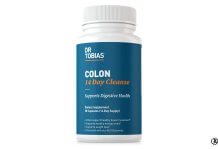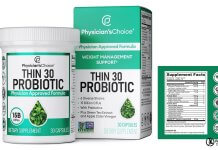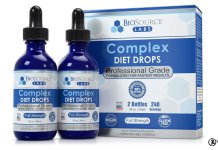I get commissions for purchases made through links on the site. As an Amazon and Clickbank Associate I earn from qualifying purchases. Learn more.
Obesity is a global problem today that’s affecting millions of people. According to World Health Organization (WHO), this problem has primarily been attributed to the unhealthy lifestyles that most people have turned into and lack of exercise. Today, most nutrition experts and health organizations are researching to help curb the obesity problem that has been associated with other life-threatening conditions like high blood pressure, stroke, diabetes, cancer, heart disease, and breathing problems. One of the greatest solutions recently found is omega-3, which plays a significant role in weight loss. It’s an excellent solution that’s being used today to counteract obesity by promoting weight loss. Health experts have always recommended that people eat healthy diets that include vegetables and fruits. They’ve also discouraged the consumption of processed foods which mainly contribute to weight gain. Weight loss is very important in one’s life since it helps reduce the risk of developing heart disease, blood pressure and reduces abdominal fat. Nutritionists also recommend pregnant women consume more omega-3 fatty acids to promote better development of the baby’s neurological system.
Estimated reading time: 9 minutes
Table of contents
- Organifi Green Juice – The Organifi Green Juice is a full-spectrum nutrition drink that helps you lose weight, build muscle, and restore your energy. This is a detailed review.
What Are Omega-3 Fats?
Omega-3 fats fall in the category of essential fats that are healthy for the body. They’re generally polyunsaturated fats mainly found in fish and other plant foods like walnuts and flaxseeds. These fats are considered essential since one has to obtain them from the diet. Typically, the human body has no ability to produce them. Omega-3 fatty acids are broadly categorized into the following:
- Essential omega-3 fatty acids
In this category, there’s only a single omega-3 fatty acid known as Alpha-linoleic acid (ALA). It’s mainly common in plant-based foods such as flaxseeds, hemp seeds, chia seeds, walnuts, etc.
- Long-chain omega-3 fatty acids
They’re categorized into 2, i.e., docosahexaenoic acid (DHA) and eicosapentaenoic acid (EPA). They’re mainly available in fatty fish, seafood, fish oil, and algae oil. Omega-3s are good fats that help reduce blood pressure, triglycerides, and cholesterol.
Omega-3 Sources
Omega-3 fatty acids are essential for overall health, and they can play a role in weight loss and maintenance. Including a variety of omega-3-rich foods in your diet can be beneficial. Here are some excellent sources of omega-3 fatty acids:
- Fatty Fish: Fatty fish are among the best sources of omega-3s. These include:
- Salmon
- Mackerel
- Sardines
- Trout
- Herring
- Anchovies
- Albacore tuna
- Flaxseeds: Flaxseeds are rich in alpha-linolenic acid (ALA), a type of omega-3 fatty acid. Ground flaxseeds can easily be added to smoothies, oatmeal, or baked goods.
- Chia Seeds: Chia seeds are another plant-based source of ALA. They can be mixed with yogurt, added to cereals, or used in recipes for a nutrient boost.
- Walnuts: Walnuts are a convenient and delicious source of omega-3s. They make a great snack or can be added to salads and oatmeal.
- Hemp Seeds: Hemp seeds contain both omega-3s and omega-6s in a balanced ratio. They can be sprinkled on salads, yogurt, or blended into smoothies.
- Seaweed and Algae: Some types of seaweed and algae contain DHA and EPA, the two types of omega-3s found in fish. These can be used in sushi rolls or taken as supplements.
- Krill Oil: Krill oil supplements are a rich source of omega-3s and contain both DHA and EPA. They are available in capsule form.
- Edamame: Young soybeans, known as edamame, are a plant-based source of omega-3s. They can be enjoyed as a snack or added to salads.
- Canola Oil: Canola oil contains a moderate amount of ALA and can be used for cooking and salad dressings.
- Herring Roe: Herring roe, also known as fish eggs, is a delicacy in some cuisines and is a good source of omega-3s.
Including a variety of these omega-3-rich foods in your diet can help you reap the benefits of these essential fatty acids. Whether you prefer fish, seeds, or supplements, incorporating omega-3s into your meals can support your overall health and weight management goals.
How Omega 3 Help With Weight Loss?
Omega-3 can really help with weight loss. If you’ve been struggling to lose weight, there are high chances that you’ve tried various forms of exercise, diets, or even supplements to maintain a healthy weight. However, the good news is that you can easily lose weight with the help of omega-3. This will help you attain the desired weight, improve your mobility and avoid health issues associated with being overweight. Instead of undergoing bariatric surgery, you should change your dietary habits, and you’ll soon get better results. Omega-3 fatty acids can help in weight loss in the following ways:
Reducing Hunger and Appetite
Omega-3 fatty acids will assist you in losing weight by reducing hunger and appetite for various foods. If you take a diet rich in omega-3 fatty, you’re likely to experience an increase in hunger feelings. Research shows that most people who take omega 3 for losing weight feel fuller for the better part of the day, thus reducing food intake. If you don’t take more processed foods and other regular meals, you’ll start seeing some positive weight loss results. More particularly, omega-3 fatty acids from fish oil lead to increased leptin hormone production, which is responsible for regulating appetite. This hormone triggers the hypothalamus in the brain, thus reducing hunger. Leptin hormone also plays a significant role in lowering the activity of the brain’s hunger promoting neurons. When it comes to the effects of omega-3 fatty acids, they’ll vary from one person to another, depending on their rates of metabolism and health status.
Lessens Stress Hormones
Studies have shown that increased stress levels can result in weight gain. Particularly, cortisol and adrenaline hormones can easily lead to weight gain. Cortisol hormone is classified as a catabolic hormone whose primary function is breaking down most muscle tissues into essential amino acids required by the body to function properly. The liver is responsible for releasing these amino acids and later converting them into glucose. If you’re stressed, your body will release more of these hormones, thus causing increased fat storage and muscle degradation. Studies have also linked cortisol hormone with increased appetite. This means that being stressed can lead to overeating and weight gain, mainly if the foods taken are processed or have high amounts of fat, refined sugar, and salt. Increased stress levels also slow body metabolism. You can easily lessen these stress hormones and encourage weight loss with omega 3.
Reduces Inflammation
Inflammation is among the leading causes of weight gain. Omega-3 fatty acids can help reduce inflammation and promote weight loss due to their anti-inflammatory properties. If you take too much processed foods or those with huge refined sugar or saturated fats, you’ll be at a higher risk of developing inflammation. Most of these foods have high levels of advanced glycation end products(AGEs). Although some studies show that such products have some health benefits to the body, too much consumption can be dangerous. Omega-3 fatty acids, especially in fatty fish, obstruct the harmful effects brought by these foods through the blockage of inflammatory agents. A recent study carried out on several arthritis patients found that omega-3 fatty acids have the ability to reduce joint inflammation. When there are reduced body inflammations, there’s also a low risk of developing chronic conditions such as cancer, type 2 diabetes, and heart failure.
Lowers Triglycerides
Triglycerides are fats available in the human blood. When your body has high triglyceride levels, commonly called hypertriglyceridemia, there’s a higher risk of developing obesity, stroke, or heart disease. If you like taking foods such as pizza, cheeseburgers, doughnuts, and French fries, you are at risk of increasing these triglycerides levels. Health experts discourage people who want to lose weight from taking foods with saturated fats, cholesterol, or trans fats to avoid this problem. Omega-3 fatty acids have the ability to reduce the level of triglycerides, thus promoting weight loss. High levels of triglycerides lead to more fat storage. Therefore, lowering their general levels makes it easier for the body to burn more fat and convert it to energy resulting in weight loss.
- The LeanBiome – The Lean Biome has been around since 2013 but is still one of the best selling supplements today. Read our detailed review to see why.
Boosts Insulin Sensitivity
The insulin hormone plays a vital role in regulating blood sugar levels. Insulin resistance makes it difficult for the body to have a proper response to insulin, thus promoting more fat storage and high blood glucose levels. Omega-3 fatty acids help to increase insulin sensitivity and reduce insulin resistance resulting in weight loss. Your body will get carbohydrates, fats, and proteins whenever you eat various foods. In this case, you need insulin hormone to ensure the complete metabolism of these nutrients. If your body is able to tolerate insulin activity, then you’ll likely have insulin sensitivity. When your body develops insulin resistance, there are high chances of developing obesity due to the increased storage of excess glucose and fats in cells. Insulin resistance also promotes inflammation.
Builds More Muscle
Most top athletes across the globe need omega-3 fatty acids to promote muscle growth. If you combine omega-3 rich foods and exercise, it becomes easier to build muscle mass and promote weight loss. This is because the omega-3s have the ability to improve blood flow in the muscles by stimulating some enzymes.
Increases Metabolism
The rate of metabolism in the body will determine how many calories will be burned daily. Omega-3 fatty acids help increase metabolism in the body. The higher the level of metabolism, the higher the chances of burning more body fats, thus resulting in weight loss. A recent study done to ascertain the impact of omega-3 in metabolism concluded that every intake of food that contains these essential fats results in a 3.8% increase in metabolism. Increased metabolism also contributes to increased muscle mass which helps in the burning of extra calories than fat. There are many other studies in place to determine how else omega-3s can improve metabolic rates.
Improves Immune System
Omega-3 fatty acids play a significant role in improving immune system functioning during the weight loss process. It helps lower inflammatory responses in the body, thus promoting weight loss. With a strong immune system, there are also fewer risks of health problems like diabetes, cardiovascular disease, stroke, and metabolic syndrome, which don’t favor weight loss.
In conclusion, these are some ways in which omega-3 fatty acids can help in weight loss. Omega-3s will easily help you burn extra calories every day. They also help control appetite-related hormones like ghrelin and leptin. Ghrelin hormone provides signals to the brain when you’re hungry, whereas leptin hormone provides signals when one gets full.
- Protetox – Protetox is a natural weight loss formula that helps you lose weight and keep it off. This is a detailed beginner’s guide to Protetox, including a list of ingredients and side effects.
Frequently Asked Questions(FAQs)
You need a minimum of between 250-500 mg of omega-3 daily to lose weight. However, depending on your health condition, you may require more or less intake.
Omega-3 fatty acids help raise the amount of calories that the body can burn per day by increasing metabolism.
Omega-3 can lower inflammation in the body by inhibiting enzymes that lead to swelling and tissue damage, thus promoting weight loss.




























